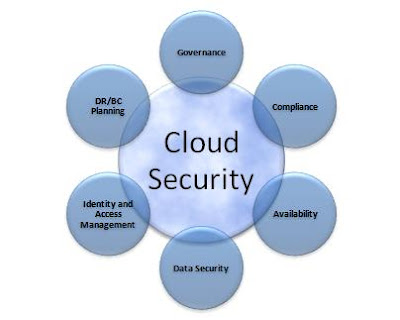Introduction
Cloud computing has been envisioned as the next generation paradigm in the world of computing. In the cloud computing setting, both apps and resources are distributed on request over the net as services. Cloud is a setting of the software and hardware resources in the information centers that give diverse facilities over the system or the internet to satisfy the requirements of the user. Data safety has constantly been a main concern in the field of IT. In cloud computing, it becomes predominantly serious because the information is placed in different places around the world. Safety of information and confidentiality are the two key aspects of user’s fears about the technology of cloud. Though many skills on the subjects in cloud computing have been examined in both industries and academics, data safety and privacy protection are becoming very significant for the forthcoming growth of cloud computing technology in industries and businesses.How to ensure data security with cloud computing
Most industries have accustomed safety and defiance policies and actions that are used to defend their academic possessions and commercial assets, particularly in the space of IT. These strategies and techniques are based on the examination of the effect of compromising these assets. An outline of controls and additional techniques are used to alleviate risks and to be used as a standard for the implementation and authentication of compliance. These ideologies and strategies, the security plan of the enterprise, and the quality enhancement procedures create the security control, risk management, and passivity model of any enterprise.
Data integration is the direst element in any data organization. Usually, data integrity is implied to protection of information from illegal removal, variation, or fabrication. Handling entity’s right of entry and rights to particular enterprise resources confirms that valued information and facilities are not ill-treated, fiddled, or stolen. Data integrity can simply be achieved in an impartial system with a single database. Data integrity is kept via database limitations and dealings, which is generally completed by a database management system i.e. DBMS. Dealings should trail properties like atomicity, constancy, isolation, and strength to make certain of data integrity in cloud systems.
Data privacy is significant for operators to store their secretive or private information in the cloud. Verification and access regulation plans are used to confirm data confidentiality. The information privacy, validation, and access control concerns could be addressed in cloud computing by enhancing the cloud consistency and reliability. Encryption is commonly practiced to confirm the privacy of user information. Homomorphism encryption is a sort of encryption arrangement which has been used for this purpose as well. It makes sure that the results of cryptogram algebraic setup are steady with the clear process after encryption results; moreover, the entire method does not need to decrypt the information. The application of this method is used very well to resolve the discretion of information and data operations in the system of cloud computing. Apart from all these defined method, a hybrid method is also proposed for the confidentiality and reliability of user documents and statistics, which makes use of key sharing and verification techniques.

